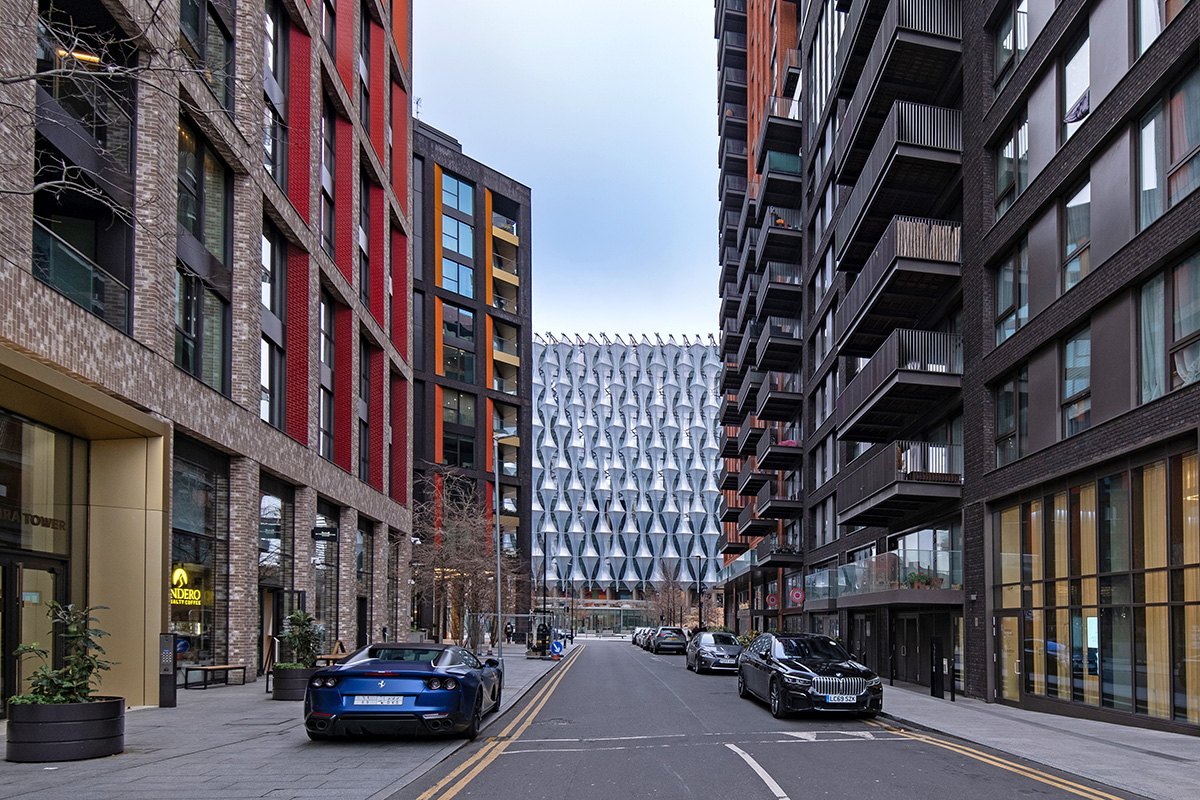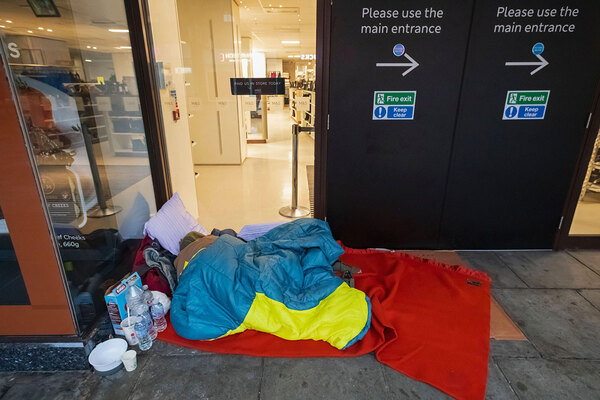You are viewing 1 of your 1 free articles
What does ‘British homes for British workers’ really mean?
Inside Housing columnist Jules Birch breaks down the Conservative Party’s latest slogan
If you are a Conservative MP worried about losing votes to Nigel Farage and Reform UK, looking to make headlines in right-wing newspapers, ‘British homes for British workers’ ticks all the right boxes.
Even better if you can claim, as the Conservative twitter account did, that “we’re ensuring decent hard-working people are prioritised for the home they need” and you get Reform UK leader Richard Tice accusing you of stealing the party’s policies.
“Anti-social tenants will be banned from council housing under new laws”, the angle chosen by right-wing press and the press office at the Department for Levelling Up, Housing and Communities, ticks yet more boxes. As so does “ban terrorists from social housing”, the angle highlighted in an odd story in the Sunday Telegraph.
The consultation on social housing allocation launched this week ostensibly does all of these things and more, along the way reviving the Conservatives’ obsession with high earners supposedly hogging social housing.
It goes without saying that all of this ignores the elephant in the room: those ‘British homes’ – to which I’ll return later – but all is not quite what it seems. The consultation also brought two clues as to its underlying purpose: first, the press release was published long before the actual consultation document. Second, a day after publication there is still a glitch that means it is impossible to respond by entering any text or even ticking a box.
The mixed messaging is another clue: British people may be decent but earn too much and others may be hard-working but foreigners – both may misbehave.
The Sunday Telegraph’s discovery that the ban on terrorists does not include those with spent convictions is a fourth clue. Because this is a consultation that tinkers with allocation via secondary legislation, it cannot override the Rehabilitation of Offenders Act or other legislation.
Finally, the consultation does not actually mention ‘British homes for British workers’, which is hardly surprising when it only covers England.
The housing end of it does not apply to Scotland, Wales and Northern Ireland – housing policy is devolved – but there is no such thing as English citizenship, so no way to ban Scottish, Welsh and Northern Irish people. English homes for British workers anyone?
Since this is not the place to start breaking international agreements and treaties, the list of those eligible extends much further than that. As I read it, the new test would make explicit rights that already exist, but Telegraph readers may still be distressed to learn about English homes for British, Irish and some EU, Commonwealth, Swiss, Afghan and Hong Kong citizens.
The new bit seems to be a 10-year qualifying period for others who have cleared the hurdle of having recourse to public funds, but now face a much longer wait for a permanent home.
“The housing end of it does not apply to Scotland, Wales and Northern Ireland… English homes for British workers anyone?”
The consultation also proposes a ‘local connection test’ that would “require applicants to have a connection with the local housing authority area for at least two years before they can access social housing there”. There would be exemptions for armed forces members and veterans, care leavers, domestic abuse victims and refugees arriving via resettlement schemes.
Most councils already apply local connection or residence tests (some for longer than the two years suggested in guidance) in their qualification criteria and they used them to cut their waiting lists after 2010. Put the two tests together and you have a system that will not work as the slogan implies, but which will also leave applicants to find their way through a maze of regulations or more likely stuck in limbo and denied homes.
Nothing that I can see here changes their entitlement to help via the homelessness legislation, increasing temporary accommodation costs that have already soared for local authorities.
All this to tackle a problem that exists in the mythology of queue-jumping migrants rather than the reality that 90% of lead tenants in social housing are UK nationals and 90% of new lettings go to UK nationals.
There are echoes here too of many previous attempts by politicians to put their stamp on this debate. The existing rules have been tightened several times before, for example by excluding citizens from the European Economic Area who are not working and giving local people greater priority on social housing waiting lists under Labour and by ending open waiting lists under the coalition.
In 2012, the Localism Act gave local authorities the very flexibilities over local connection that housing minister Lee Rowley now says have created a “postcode lottery” for social housing applicants and justify a nationally imposed test. A year after that, David Cameron was proposing a local residency test for social housing to create an expectation that migrants would have to have “lived here and contributed to this country for at least two years before they can qualify”.
However, the new tests in the consultation are about more than just migration and local connection.
Some local authorities already disqualify applicants based on criminal convictions and evidence of anti-social behaviour, but an ‘anti-social behaviour test’ would impose a national approach and disqualify applicants for homes for between one and five years. Meanwhile a ‘terrorism test’ would disqualify people with unspent convictions for terrorism offences.
The government also wants social landlords to use existing powers to evict existing tenants on grounds of anti-social behaviour and is exploring the creation of a new power to evict those convicted of a terrorism offence.
Finally, there would be a new ‘income test’, applying both to people on the waiting list and at the point of getting a tenancy. Some local authorities already test for income, but again the government wants consistency across the country rather than localism.
“Back in the present day, Lee Rowley justifies the changes in his introduction to the consultation by arguing that social housing is ‘a finite resource’”
This would mean that “any household seeking a social home with an income above the maximum threshold will not qualify for social housing”. The maximum threshold is not specified, but the consultation sets out options ranging from less than £40,000 (with the potential to affect thousands of tenants) to £70,000 or more (none).
Like the rest of the consultation, the income test would not apply to existing tenants “so, if tenants succeed in securing higher-paid employment after securing a social home, this will have no impact on their tenancy. This will ensure no one is penalised for improving their lot in life”.
But can it really only be nine years since the government tried to do exactly that in its abandoned plan to charge higher-income tenants higher rents under ‘Pay to Stay’?
Back in the present day, Mr Rowley justifies the changes in his introduction to the consultation by arguing that social housing is “a finite resource”. However, he also popped up on the Today programme on Tuesday to make the dubious claim that “there’s been a significant increase in social housing over the last 14 years”.
He was, of course, exercising the housing minister’s prerogative to blur the distinction between affordable and social housing. What has actually happened is the opposite of what Mr Rowley says: thanks to the Right to Buy, demolitions and conversions to affordable rent, there are up to 300,000 fewer social rent homes than in 2010.
If the minister really wants British homes for British workers, or even just the social housing that England desperately needs, he should start right there.
Sign up for our daily newsletter
Already have an account? Click here to manage your newsletters













